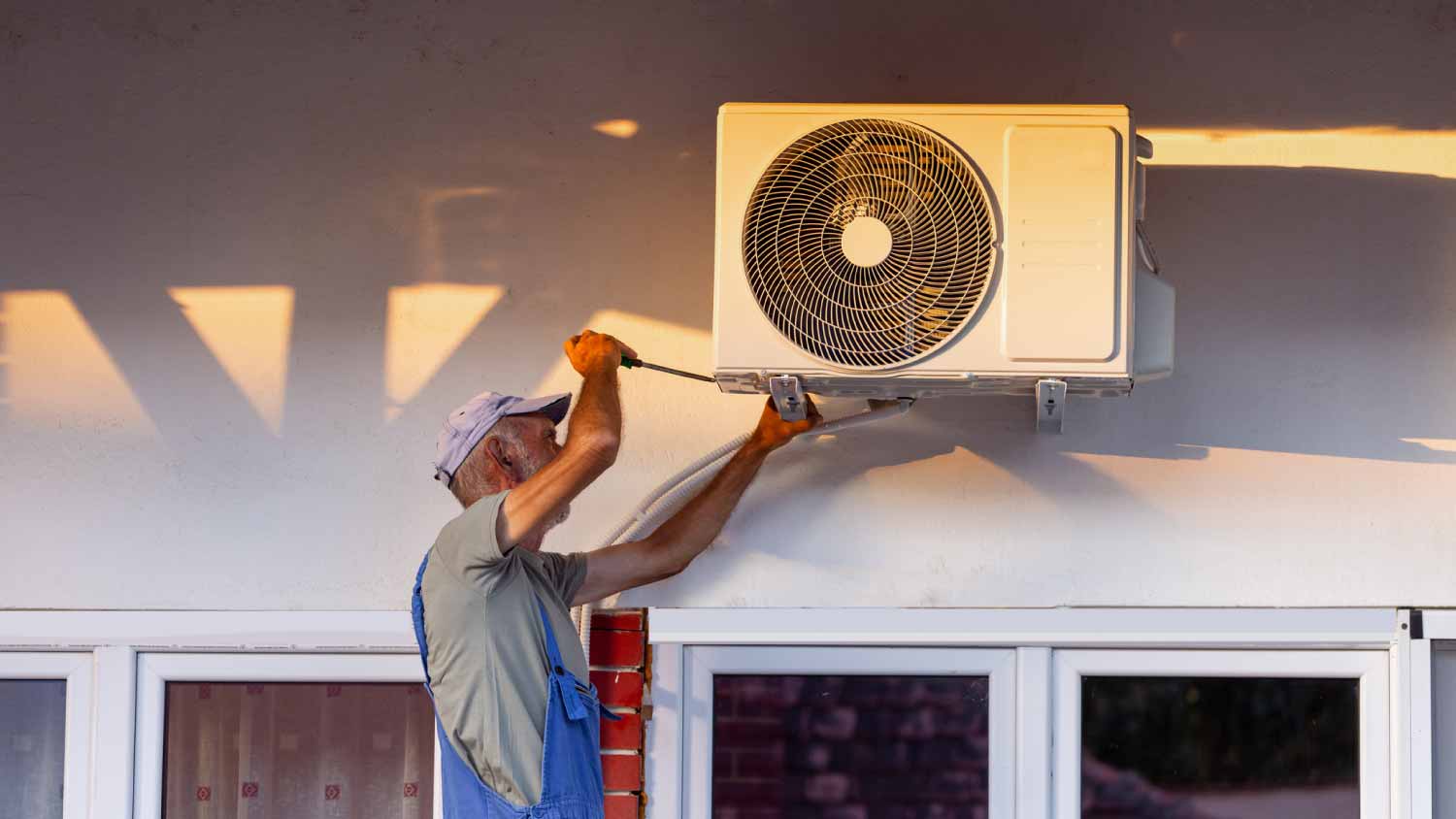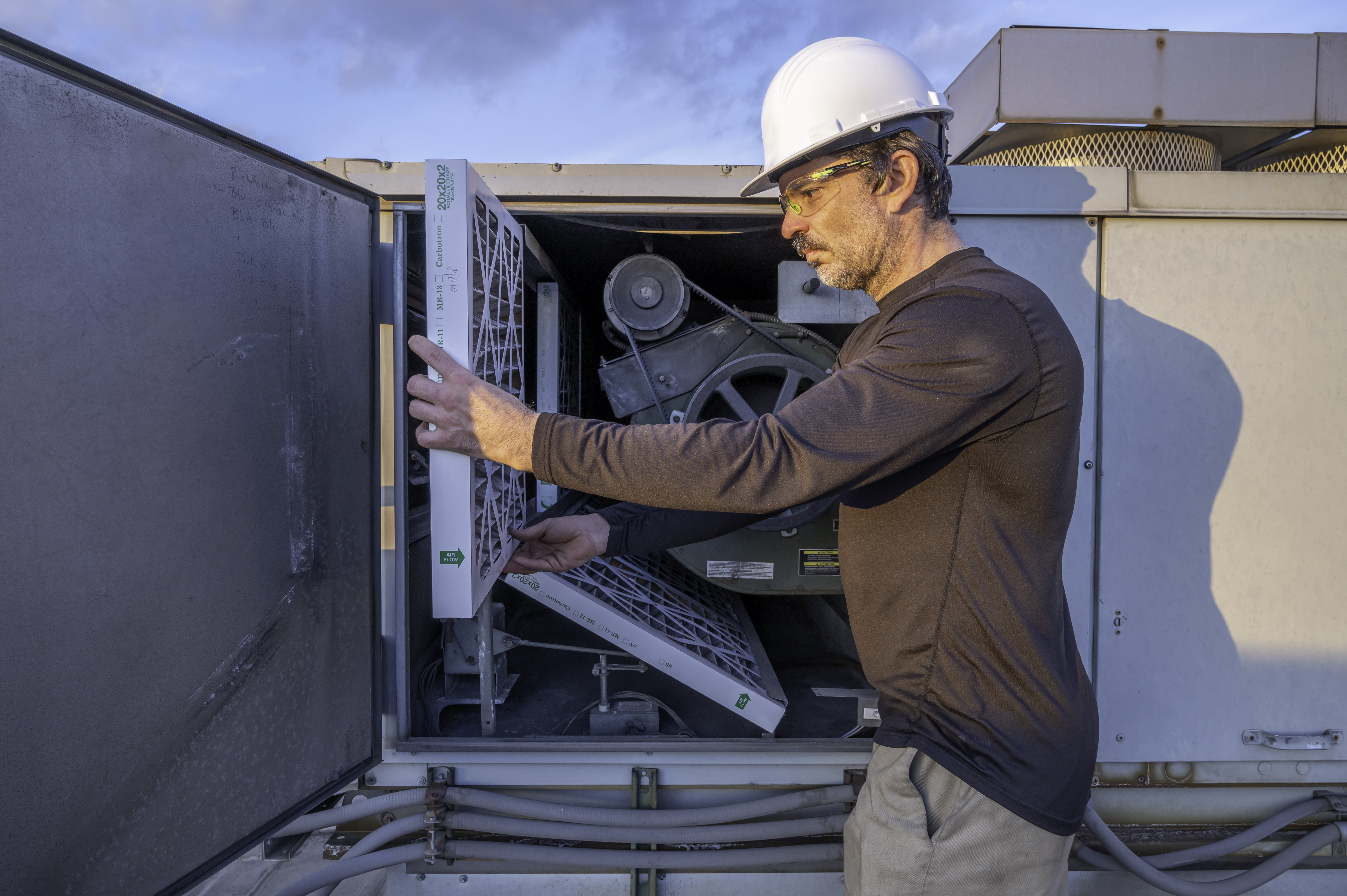
If your air conditioning unit isn’t functioning properly, you might need an AC recharge. Our guide will detail what a typical AC recharge cost looks like.
Should you cool it on the spending to repair your AC system?


When deciding whether to replace your coil or the entire HVAC system in your home, it’s important to leave any repairs or identifications to the professionals.
The most important things to consider are the age of the system, the amount of damage, energy efficiency, the size and type of system, and finally, what type of refrigerant your system uses.
If your AC system is less than a decade old or you’ve already sunk a hefty sum into repairs, it is likely worth replacing the evaporator coil.
If your condenser coil is broken, the issues are recurring, or your AC uses R-22 refrigerant, it is time to replace the entire AC system.
A common dilemma for AC repairs is whether to replace a coil or the entire system. While it’s always tempting to keep repairs as inexpensive as possible, you also don’t want to throw unnecessary cash into a system that might fail before you get your money’s worth. Here’s how to determine whether to repair versus replace a coil or the entire system with the help of an AC repair technician.
HVACs are one of the most complicated and essential systems in our homes. To avoid further damage or safety risks, always hire a certified HVAC specialist to repair or replace broken parts.
These are the main things to consider when deciding whether to shop for a new AC system or replace a coil.
Most AC units last 10 to 20 years on average. Central air systems last between 12 to 17 years, depending on usage and level of maintenance. If your evaporator coil is severely damaged and your AC system is more than 8 years old, consider replacing the entire system since it’s more likely to continue breaking down and necessitating additional repairs. If you’re on the fence about replacing your HVAC system, consult a professional AC repair technician near you for an expert opinion.
When considering whether to replace the evaporator coil or the entire system, weigh the extent of the damage to this essential part. If the damage caused a severe refrigerant leak, it likely compromised the entire system, making it difficult and expensive to restore to working order. However, if the evaporator is only dirty or has heavy grime build up, a professional can clean it without needing to replace anything.
If your evaporator coil is leaking and it runs on the refrigerant R-22, it’s likely a sign that it’s time to start fresh with a more energy efficient HVAC system. This type of issue is expensive to repair, plus outdated refrigerants can harm the health of household members and contribute to environmental damage.
Selecting and installing a more energy-efficient AC system can help reduce your home’s carbon footprint and save on monthly energy costs. Look for high SEER ratings to find the most energy-efficient AC system for your home.
Need to upgrade your HVAC’s capacity to cool your home quickly and efficiently? If your evaporator coil is in need of repair, use it as an opportunity to evaluate whether your current system is fulfilling your household’s needs. If not, consider replacing the entire system.
Choosing the right size AC unit for your home is extremely important for the function and longevity of the system. While it’s tempting to save money and purchase a smaller system, it won’t cool your home properly if it’s too small. It will work overtime to try and keep up with your home’s cooling needs, leading to premature wear and tear.
Replacing an AC system is a good time to consider different types of air conditioners and what will work best for your home. If your budget is tight and you’re not sure you can swing the cost for a new system, consider adding window AC units to keep essential rooms cool until you’re ready to invest.
The type of refrigerant used by AC systems is a hot topic in environmental preservation. The production and import of R-22, also known as freon, the staple refrigerant used in most AC systems until recent years, is banned due to its harmful impact on the Ozone layer. Hydrofluorocarbon (HFC) refrigerants, such as R-410A, were meant to replace it, but were soon found to have harmful environmental effects. While HFCs like R-410A don’t deplete the ozone layer like R-22, they have a high global warming potential (GWP), meaning they have a greater capacity to trap heat in the atmosphere and exacerbate global warming.
Recognizing the need to address the environmental impact of HFCs, the Environmental Protection Agency (EPA) has initiated regulations to phase out the production and use of high-GWP refrigerants like R-410A in favor of more eco-friendly alternatives. So, if you’re purchasing new AC systems, you should look for low-GWP alternatives such as R-32 to avoid potential issues with repurchasing in the future.
Deciding whether to replace a coil or the entire AC system can be tough. It’s an expensive part to replace, and prices can equal a significant portion of the cost for a new system. Consider these scenarios to help you decide.
| Replace the AC Coil | Replace the AC System |
|---|---|
| Your AC system is less than 8 years old | Your AC system is 8+ years old |
| Cost of replacing a coil isn’t nearly as expensive as installing a new system | Your AC isn’t running efficiently |
| Coil is covered by the manufacturer’s warranty | Your AC system uses R-22 refrigerant (Freon) |
| It’s an isolated issue | Condenser coil is broken |
| You’ve recently done significant repairs | Your AC system has recurring issues |
These are the main scenarios where you may want to consider replacing an evaporator coil instead of purchasing a new AC system.
The average lifespan of an AC system is between 10 and 20 years, so if yours is quickly advancing in age, it may not be worth repairing. A good rule of thumb is to replace any unit that’s over eight years old. If your system is still relatively new, it’s best to bite the bullet and replace the evaporator coil and restore the unit.
The cost to replace an evaporator coil is between $600 and $2,000, depending on the system’s size, type, and brand. If your replacement coil cost is on the lower end, then it may make more sense to replace it rather than consider a completely new system. Compare replacement quotes from at least three local AC technicians to determine the estimated price for this fix.
Before deciding whether to replace a coil or the entire system, double-check your manufacturer’s warranty if it’s still in effect. If the coil failure is due to a manufacturing defect, it’s possible the cost of the replacement could be covered by the manufacturer.
If your AC system was previously running well before the coil issue, it may be worth it to only replace the coil. However, the evaporator coil malfunction may be a sign of a larger problem. To determine whether it was an isolated issue, schedule a HVAC inspection to check out the other components of your system.
While it’s not ideal to invest more money into an AC system that’s already had major issues, there are some exceptions. If you recently invested in significant repairs, you may want to purchase a new coil rather than losing what you just spent. Consult an AC technician about whether to continue investing in repairs to your current system.

These are the top instances when you should consider replacing the AC system rather than investing in a new AC coil.
Whether you should replace a coil or the entire system between an evaporator coil vs condenser coil. While there are scenarios where you would replace an evaporator coil, a condenser coil is almost never recommended for replacement unless the part is readily available and covered by the manufacturer’s warranty. That’s because it tends to be a very expensive part, if it’s even available. Each AC system needs a specific type of condenser, and manufacturers often won’t have one available, especially if it’s an older system.
If your AC system is over eight years old, it likely only has a few good years left before it begins to break down more frequently. Rather than putting more money into an older system, investing in a new one is a way to ensure your home cools and heats efficiently for years to come.
An inefficient AC system interferes with the comfort of your home and drives up your monthly energy costs. If your energy costs have been higher than normal since before having issues with the evaporator coil, it’s likely best to consider purchasing a new system.
If you’re constantly pumping more money into your AC system, it might be best to cut your losses and purchase a new AC. Again, it’s a very expensive part, and it’s a lot to lose if your AC system fails altogether.
While imports and production of R-22 are banned due to its harmful environmental impact, it’s still possible to purchase older or recycled stock with the help of a licensed HVAC technician. However, it’s pricey—the typical cost of R-22 refrigerant is $50 to $80 per pound or $300 to $960 for an amount sufficient to refill a home AC. As supplies continue to deplete, those costs are bound to increase. To save money and potential headaches in the future, it’s best to purchase a new AC system that uses environmentally friendly refrigerants like R-32.
From average costs to expert advice, get all the answers you need to get your job done.

If your air conditioning unit isn’t functioning properly, you might need an AC recharge. Our guide will detail what a typical AC recharge cost looks like.

What you’ll pay in Columbus, OH, for furnace repairs depends on many factors. Here’s a breakdown of what can go wrong and the cost to fix those issues.

Regularly replacing your HVAC filter regularly is vital for a healthy system. Learn how much an HVAC filter replacement costs with this informative guide.

Even when you're sweating up a storm on a hot day, your AC should keep its cool. Here's what to do when condensation on your AC signals larger problems.

Wondering who to hire for swamp cooler installation? Learn when to call an HVAC contractor, electrician, or handyperson, and what to expect.
How to clean your air conditioner depends on the unit type. Sometimes, a good hose-down is all you need if you have centralized AC. This guide can help with the cleaning process.